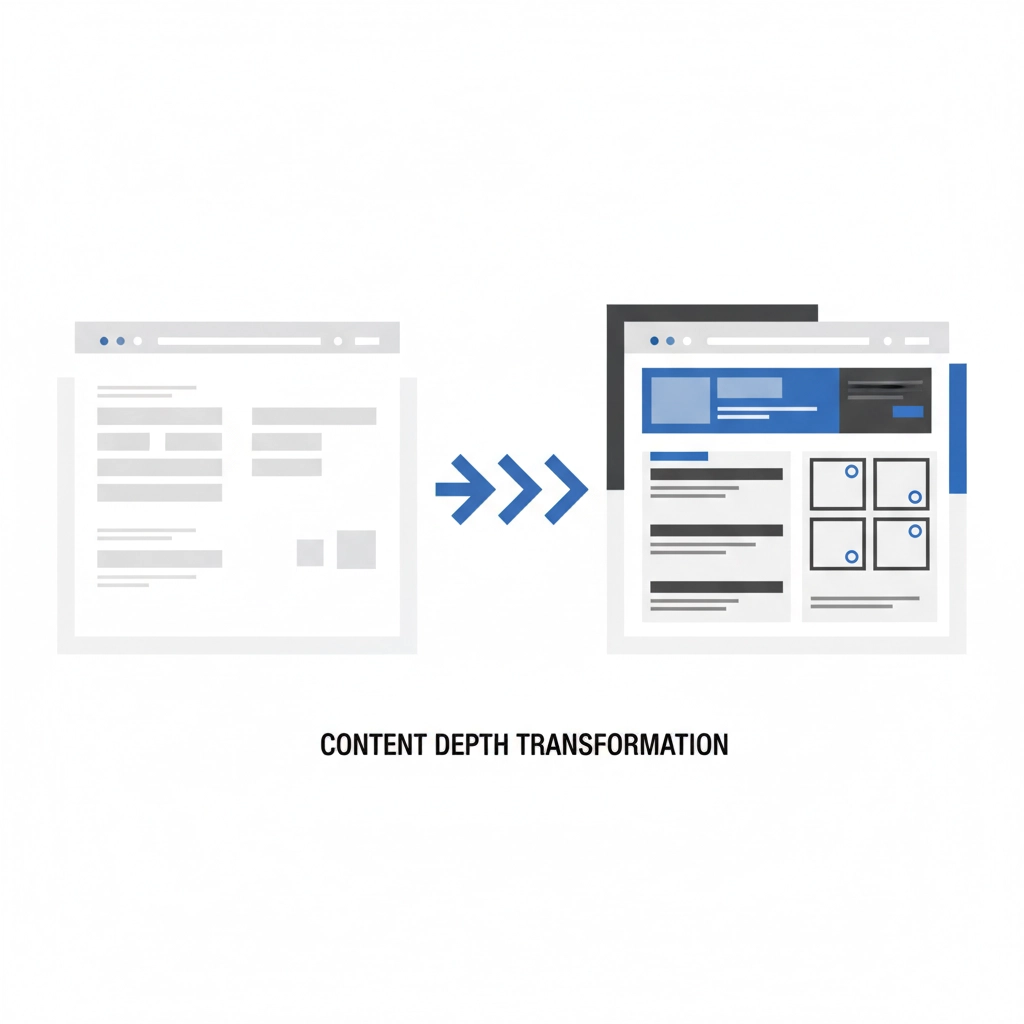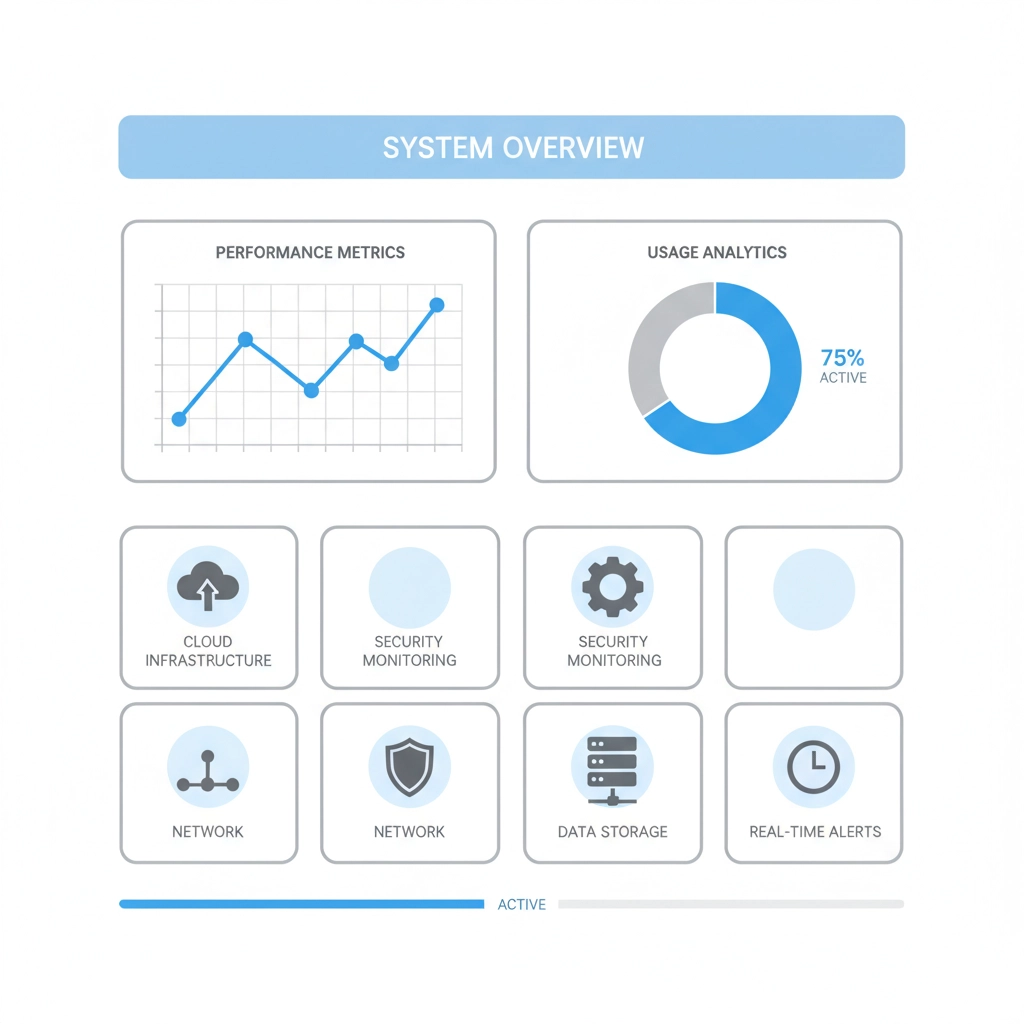Google's algorithm volatility has reached unprecedented levels in 2025, with 58% of businesses experiencing significant ranking fluctuations in the past quarter alone. If your Connecticut business has watched its search visibility swing wildly: sometimes dropping 30+ positions overnight: you're not imagining things. The search landscape has fundamentally changed, and traditional SEO strategies are no longer sufficient.
Here's the reality: Google's September 2025 "Perspective" update rewrote the ranking playbook entirely, introducing new evaluation criteria that caught most businesses off guard. Combined with AI Overviews now dominating search results, the old rules no longer apply. Businesses that don't adapt their SEO strategy immediately will continue losing ground to competitors who understand these new dynamics.
The Current Algorithm Volatility Crisis: What's Really Happening
The September 2025 core algorithm update represents the most significant ranking factor shift since RankBrain launched in 2015. Over 40% of search results are showing dramatic volatility patterns that SEO experts haven't seen before. This isn't your typical algorithm update: it's a complete restructuring of how Google evaluates and rewards content.
Three critical changes are driving this volatility:
Expertise Depth Scoring now goes far beyond traditional E-A-T signals. Google's algorithm actively measures whether your content demonstrates genuine understanding versus surface-level keyword matching. Sites with thin, keyword-stuffed content are experiencing 50-70% traffic drops.
User Journey Completion Tracking monitors whether visitors find complete solutions on your site or continue searching elsewhere. If users bounce back to Google within 30 seconds, your rankings suffer immediate penalties.
Fresh Perspective Value rewards unique insights over rehashed information. Content that simply repackages existing information without adding genuine value is being systematically demoted.
The data tells the story: major publishers like Business Insider and HuffPost have lost over 50% of their search referrals since these changes took effect. Even established brands aren't immune: The New York Times saw its organic search share drop from 44% to 36.5% between 2022 and 2025.
Immediate Response Strategies When Rankings Drop
When algorithm volatility hits your business, every hour of delay compounds the damage. Here's exactly what you need to do within the first 48 hours of a ranking drop:
Diagnostic Phase (Hours 1-6)
Verify the drop is real, not a tracking error. Check Google Search Console alongside third-party tools like SEMrush or Ahrefs. Look for patterns: did specific pages drop, or is it site-wide? Document the timeline and severity.
Identify affected content types. Are product pages, blog posts, or service pages most impacted? This reveals which ranking factors are most likely involved in your specific situation.
Check technical fundamentals immediately. Algorithm updates often coincide with technical issues becoming more damaging. Verify your site speed, mobile responsiveness, and Core Web Vitals scores haven't degraded.
Strategic Response (Hours 6-48)
Audit content depth and user satisfaction signals. Google's new Expertise Depth scoring means thin content gets penalized more severely during volatile periods. Identify pages with high bounce rates or short dwell times: these are prime candidates for immediate improvement.
Analyze competitor movements. If competitors gained rankings while you lost them, reverse-engineer their recent content updates, technical improvements, or link acquisition strategies.
Implement emergency content enhancements. Focus on your most important commercial pages first. Add genuine expertise, comprehensive coverage, and unique insights that competitors aren't providing.
Building Algorithm-Resistant SEO Foundations
Traditional SEO optimization is no longer sufficient: you need algorithm-resistant strategies that perform regardless of Google's next update. Here's how to build genuine resilience:
Content Authority Architecture
Create comprehensive resource hubs instead of isolated blog posts. Google's algorithm now favors sites that demonstrate subject matter expertise across interconnected content clusters. A single excellent page about "SEO consulting" should link to supporting content about technical audits, competitor analysis, and algorithm recovery.
Establish genuine thought leadership through original research and insights. The Fresh Perspective Value scoring system rewards content that advances industry knowledge. Conduct surveys, analyze industry trends, or provide case study data that doesn't exist elsewhere.
Technical Resilience Factors
Core Web Vitals performance has become more critical during volatile periods. Sites with excellent page experience metrics experience smaller ranking fluctuations. Aim for LCP under 2.5 seconds, FID under 100ms, and CLS under 0.1.
Structured data implementation helps Google understand your content's context and relevance. Proper schema markup provides clarity during algorithm updates when Google's systems are recalibrating content evaluation.
Brand Strength Buffers
Direct search volume for your brand name acts as a volatility buffer. Google views branded searches as trust signals. Businesses with strong branded search volume experience 25-30% smaller ranking drops during algorithm updates.
High-quality backlink profiles from authoritative domains provide ranking stability. Focus on earning links from industry publications, local business associations, and reputable directories rather than pursuing quantity-based link building.
Advanced Volatility Management Techniques
Professional SEO consulting firms use sophisticated monitoring and response systems that most businesses don't have access to internally. These advanced techniques require specialized tools and expertise:
Predictive Volatility Analysis
Algorithm volatility often follows predictable patterns based on seasonal trends, competitive dynamics, and Google's update cycles. Expert SEO consultants track volatility heatmaps, competitor movement patterns, and industry-specific fluctuation triggers to anticipate and prepare for ranking changes.
Recovery Acceleration Strategies
When rankings drop, the recovery timeline depends heavily on how quickly you implement the right corrections. Professional SEO teams can identify and fix ranking factors within days rather than weeks, dramatically reducing traffic loss periods.
Forensic SEO analysis reveals the specific ranking factors causing volatility for your particular site and industry. This personalized approach is far more effective than generic "best practices" that may not address your unique situation.
Competitive Advantage During Volatility
Algorithm updates create opportunities for businesses that respond correctly while competitors struggle. Expert SEO consultants help clients gain market share during volatile periods by implementing advanced strategies that most businesses don't understand or execute properly.
How Expert SEO Consulting Helps Navigate Algorithm Changes
Full disclosure: most businesses don't have the internal expertise or tools necessary to effectively manage algorithm volatility. The technical complexity and speed required for effective response typically exceed what internal marketing teams can deliver while managing other responsibilities.
Our algorithm recovery services combine forensic analysis with rapid implementation to minimize traffic loss and accelerate recovery. When Google's next update hits: and it will: having professional SEO expertise available means the difference between weeks of declining revenue and quick recovery with competitive advantages.
Here's what makes professional algorithm management different:
- 24-48 hour response time to ranking drops with detailed diagnostic analysis
- Access to enterprise-level monitoring tools that detect algorithm changes before they're officially announced
- Industry-specific recovery strategies based on patterns from hundreds of previous client recoveries
- Ongoing volatility protection through advanced technical optimization and content strategy
The Connecticut business landscape is increasingly competitive, and algorithm volatility will only intensify as AI continues reshaping search results. Companies that establish professional SEO partnerships now will maintain competitive advantages while others struggle with each update.
Taking Action Before The Next Algorithm Update
Google typically releases 2-3 major algorithm updates annually, with smaller adjustments happening weekly. The next significant update will likely occur within the next 90 days, based on historical patterns and current industry signals.
Your response time determines your outcome. Businesses that wait until after algorithm updates to address SEO vulnerabilities experience longer recovery periods and greater traffic losses than those who prepare proactively.
Start with a comprehensive SEO audit focused on the three pillars of current ranking factors: Expertise Depth, User Journey Completion, and Fresh Perspective Value. Identify which areas need immediate attention and develop implementation timelines that address the most critical vulnerabilities first.
Consider professional SEO consulting if your business depends significantly on organic search traffic. The complexity of modern algorithm management and the speed required for effective responses typically exceed what internal teams can deliver consistently.
The businesses thriving despite algorithm volatility aren't lucky: they're prepared. Make sure your Connecticut business is ready for whatever Google changes next.











